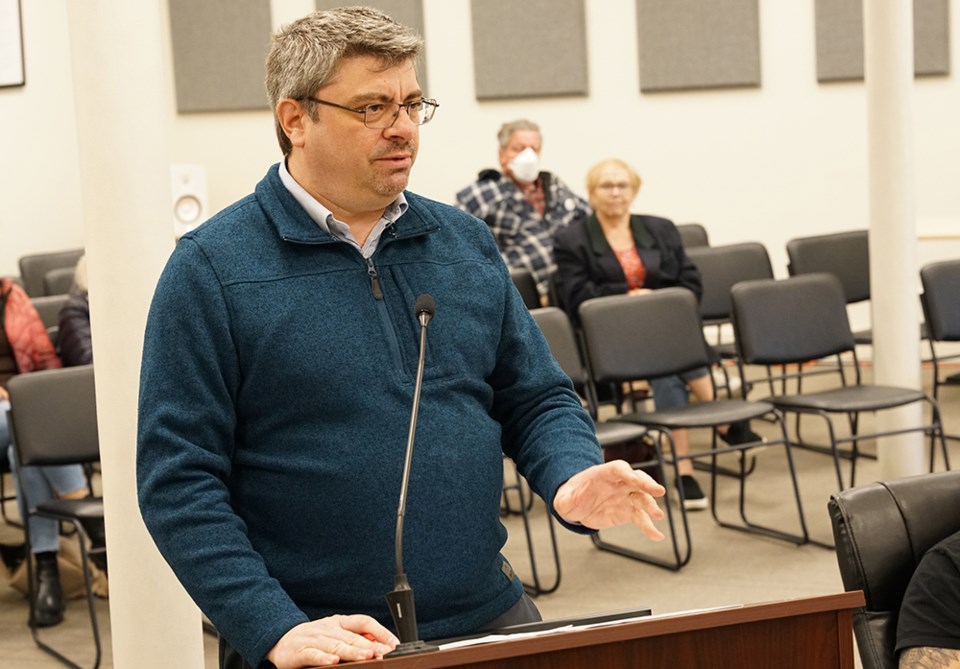City of Powell River Council will consider the prospect of adopting a code of conduct for city councillors.
At the March 14 committee of the whole meeting, interim chief administrative officer Chris Jackson said he was bringing forward a requirement in the Community Charter that city council consider either creating a code of conduct for council members, or deciding not to create a code of conduct and provide reasons why such a code will not be brought forward.
“If council decides to proceed, I’ll obtain that direction today as recommended in my report, and return with some options,” said Jackson. “There is a very general, principle-based text in the legislation that talks about what needs to be looked at in terms of the code of conduct.
Jackson said the question is, how complicated and in-depth council would want to see a code if it decided to proceed.
“The question today is whether you want to instruct staff to proceed with a code of conduct,” said Jackson.
In his staff report, Jackson recommended that if there was a decision to establish a code, that staff be directed to prepare a draft code with options and recommendations for consideration at a future committee of the whole meeting.
Jackson said the matter could be referred to city council, which could make a decision on if it wants to proceed.
Councillor Trina Isakson moved that the matter be referred to council to provide staff direction to develop a code of conduct.
Councillor George Doubt said the provincial government had mandated that every council decide whether they want a code of conduct and how they are going to do that. He said qathet Regional District is in the process of renewing and reviewing its code of conduct, and that there was a two-page code of conduct in place that had to be used by the regional district in the last term.
“The regional district did a review and hired a consultant and took the Union of BC Municipalities’ model code of conduct and went through and had a thorough discussion with all of the members of the regional district board about how they would like that code of conduct to look,” said Doubt. “It is important to have a hands-on approach with all the elected officials to create something everyone can agree with. If you have a code and significant numbers of the board disagree with it, it’s never going to work. The way to get people to buy in is if they have a hand in creating it.”
Doubt said the regional district had a one-day seminar with a consultant and came up with a code of conduct that is now undergoing legal vetting. He said he’d like to see a process that had more council involvement than having staff write a code of conduct.
Councillor Cindy Elliott said as a city representative, she was part of developing the regional district’s code of conduct.
“I thought the more valuable process was having an expert facilitate a conversation about each of the pieces,” said Elliott. “The discussion around creation of the code of conduct, in my opinion, was more valuable than the code of conduct itself.
“I don’t like the suggestion in the report that staff drafts something and comes back to us. I would prefer staff to provide a process for us to create a code of conduct.”
Elliott asked if there was money in the budget to cover the cost of having a consultant assist with drafting a code. Jackson said he believed there were funds available and that he would check.
Mayor Ron Woznow said the provincial government had made it clear the councils could decide to have codes of conduct, or if they feel comfortable that the council knows its responsibilities and has acted in a way which has not resulted in conflicts before, they do not have to formalize codes.
“So personally, I am against this council embracing the concept that we need a code of conduct,” said Woznow. “If you do the history of Powell River’s council over the last 30 years, you will find that there has never been a need for a code of conduct, because each councillor understood their positions and acted accordingly.
“Because of the track record of councils over the past 30 years, people have a comfortable feeling that if they come to Powell River, and they talk to the council, that they will be treated fairly and openly. Therefore, I see it as a big advantage for us to simply say to the government that we have demonstrated a clear track record for the last 30 years of acting appropriately and we are going to accept your offer that we do not need to form a code of conduct.”
Isakson said in light of discussion on the matter, she wanted to amend her motion to direct the matter to council for a decision on whether to proceed and have staff come back with some process options for council involvement in building a code of conduct. The amendment passed, as did the main motion after the amendment.



.jpg;w=120;h=80;mode=crop)